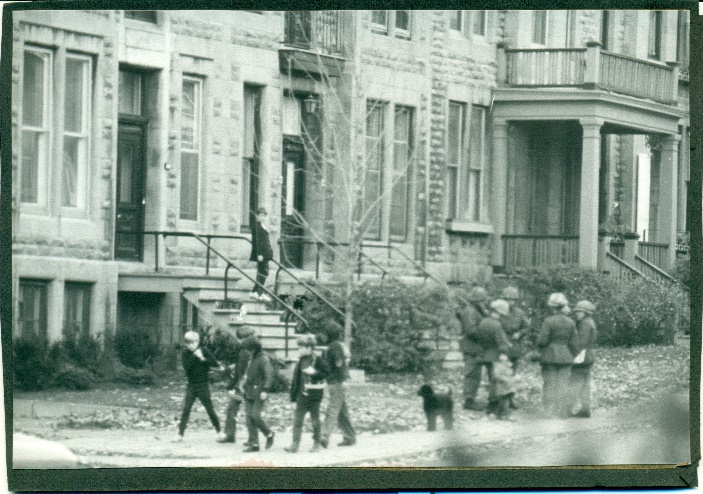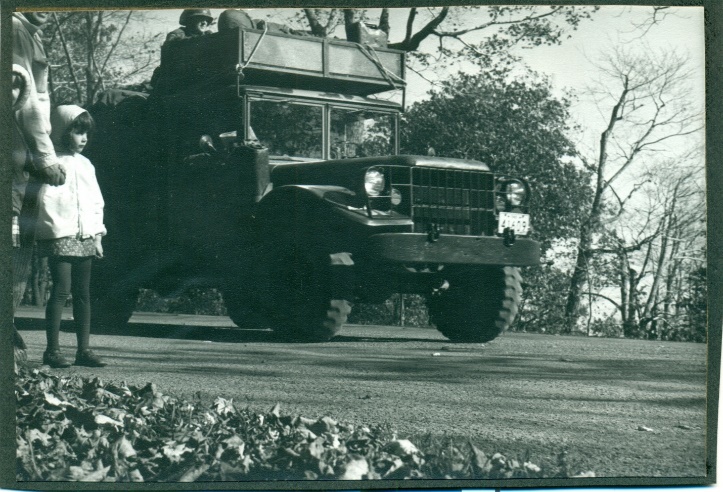Shortly before I met Leonard, his mother died. I joined a new law firm where he worked, a union-side law firm, and Len was a grizzled veteran of the place. It should not be a surprise, I suppose, but it was only later on that I learned how close he was to his mother. After getting to know him better and having become fond of him, one evening we were well into our cups when he began talking about his mother very tenderly. It seems that, before she died, she elicited a promise from Len that he would visit her grave, and that it would show signs of being visited, and cared for. You know the signs; the flowers tended to, stones placed on the gravestone. But Len lived in Toronto and his mother was buried in Montreal, and while he could get the flowers tended to, he couldn’t visit her grave often. It weighed on him.
That same night Len told other stories of growing up in Montreal. His parents had come there after the war – both survivors of the camps – and set up in business. They became successful, middle-class migrants. They enrolled both their boys in a Hebrew high school, Yeshiva. The school was in a low-rise in a leafy suburb and set next to a park on the south shore side of Montreal. It is still there. The surroundings are comfortable, they exude a fought-for, but enjoyed comfort. All the attendees were, of course, Jewish, and there was a sizable community in Montreal, the accumulated effect of a century of migration, on and off, particularly from eastern Europe. Some of the better off kids there had parents who owned garment factories – what I believe was called the schmata business. Graduates of Yeshiva include deans of universities and future politicians and, of course, Len. It is interesting how many came through Yeshiva.

One of Len’s stories took place in October, 1970. It was still warm in October, and so the windows in the school were all open. Prime Minister Trudeau had said the words “just watch me” on television. The school’s Educational Director, Rabbi Portnoy, was walking down the sidewalk along the park next to the school. He, and everyone in a classroom that side of the school, heard the following yelled out of one of the open windows of the school:
“Portnoy, you fucking pig”.
Pause for a moment to reflect on the choice of diction: a rabbi and leader of the Hebrew high school called a pig, which has both the religious prohibition and more modern connotations of police. Even more serious for a seminary of learning, though: a fucking pig. It was a total failure of imagination. It was not even politically charged, it was just the quotidian insult of the day.
But these were tense days, and so perhaps something small like “fucking pig” pricked Portnoy, or maybe he was a stickler for decorum. Or maybe he wasn’t getting the respect he thought he always deserved.
Of course, classes were immediately stopped, and an assembly called the purpose of which was to find the culprit. All students attended. The faculty sat at the front of the room, and Portnoy, after describing the conduct in question as “a pornographic profanity preceding an epithet of pig”, required the author to identify himself (there was no doubt it was a him). There was an excited murmur, but no one self-identified. It was a stand off. As the letter sent home to parents later said, “regrettably, despite the moral training parents and the school pride themselves in instilling in pupils, no one stepped forward.”
This tactic not having worked at all, the Portnoy made good on prior threats and suspended those classes that had been on the side of the school facing the park “until further written notice.”
As those students were being sent home, the others in the school decided to walk out in sympathy. About that act of solidarity, the letter sent home said, rather archly, “a school cannot tolerate ‘sympathy’ walk-outs, least of all when these ‘walkouts’ support conduct inconsistent with that which parents expect our type of school to inculcate in their children.” It went on to demand certain students return to school the following Monday, failing which they would be required to withdraw from the school.

That was a second miscalculation by Portnoy. The students remained locked out or on strike, or both. Sensing something in the air, they organized protests in the park across from the school, began holding “teach-ins” and started inviting separatists and trade union organizers. No one knew where the eruption of solidarity was going. There was a carnival air.
Let me pause again here to draw attention to the context. This was a private Hebrew high school. The attendees were all Jewish. Some of the kids in this school had parents or grandparents who survived the Shoah, and more that didn’t. The concept of group punishment was something these kids were profoundly aware of. If there was one group of kids in the world who were not going to give up one of their own to an authoritarian dictate of a petty bureaucrat in any form, it was this group, in those times. The punctilious Rabbi Portnoy was just no match for that. And, in the end, as with so many of these situations, it just fizzled out. Winter settled over Quebec like a dream of liberation, parents got impatient, classes resumed and the culprit never found or punished.
One day some years ago I found myself visiting my daughter in Montreal where she attended university. On a whim I decided to find Len’s mothers’ grave. With a couple of directions, it didn’t take long to find, next to his fathers’ grave. The flowers were planted and tidy. I put three or four stones on the gravestone on the theory that it would look busy, took a photo, and sent it to Len. He seemed very grateful, called me a mensch. I knew it meant something good from the way he said it. Such an easy thing to do, that now each time I pass through Montreal, even just for a day, I visit her grave. I do the things that people do when alone at graves: I talk a little about Len, and say a couple of things about what I’m up to, and always thank her for giving him a proper education.